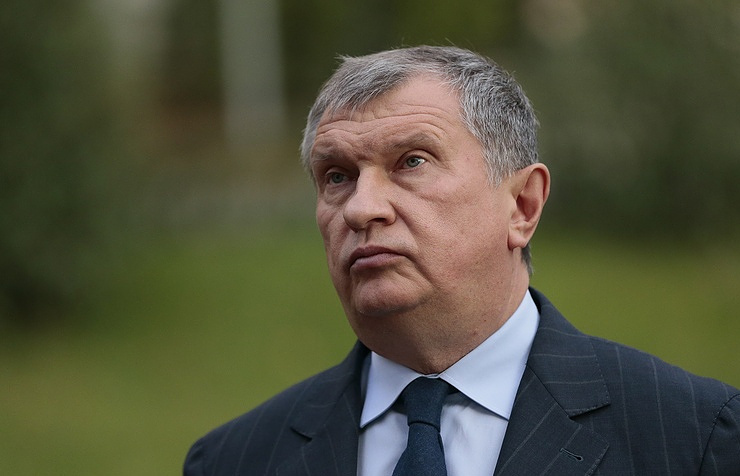Head of Rosneft Igor Sechin does not rule out a future possible need for agreement on urgent increase of oil production, not freezing, he said in an interview with Italian Il Sole 24 ore.
“The market is coming into balance faster than oil analysts expected. Who knows, maybe in 3-5 years the world market will require a different kind of agreement – on urgent increase of oil production and oil supplies to eliminate the deficit caused by a period of low investment,” Sechin said.
Sechin said oil producers discussed production freezing as a temporary solution to mitigate excessive price fluctuations in the market. “It should be noted that since the maximum decline in prices in January 2016, when the talks about freezing production were particularly active, the oil price rose almost twice, reaching a certain balance at the level of $50 per barrel. And it happened without any agreements, which indicates the fundamental stability of oil market,” Sechin said.
On April 17, oil-producing countries from OPEC as well as non-OPEC members, met in Doha (Qatar) to discuss stabilization of oil prices, although the countries failed to conclude the agreement.
Minister of Energy and Industry of Qatar Mohammed Saleh Abdulla Al Sada told journalists that the participants of the meeting concluded they need more time to decide on freezing oil production.
Earlier, Azerbaijan’s Energy Minister Natiq Aliyev said in an exclusive interview with TASS that draft agreement of the oil producer countries suggested “freezing” the production at January level through to October, 2016. However, Saudi Arabia requested to make “last-minute changes” in the draft agreement before the talks started, Reuters reported with reference to sources.
On February 16, in Doha, Qatar, oil ministers of Saudi Arabia, Qatar, Venezuela, members of OPEC, and Russia’s Energy Minister Alexander Novak held talks on improvement of the situation with oil prices. The parties expressed readiness to maintain oil production on the level of January of 2016, if other oil producing countries join this initiative.
It is reasonable to consider various options for Rosneft privatization
It is reasonable to consider various options for privatization of Rosneft in the current difficult situation, including attracting strategic investors.
“Given the situation in the world oil market and the sanctions, the company’s current price quotations hardly meet its fundamental value. However, budget issues should also be taken into account. We believe that in the current situation it is reasonable to consider various options, including attracting strategic investors,” Sechin said.
According to Sechin, a certain recovery of market conditions, lifting restrictions as well as implementation of some of the state support measures, for example, improving infrastructure and the investment climate, will contribute to effective privatization of the company.
Sechin noted that the main task of the company’s management now is increasing its value for the shareholders, the largest of which is the state. “Meeting this challenge will contribute to, among other things, maximizing state revenue from the possible sale of its stake,” he said.
Russian President Vladimir Putin announced the decision to sell stakes in Rosneft, Bashneft, VTB, Alrosa and Sovcomflot in January.
According to Russian Minister of Economic Development Alexey Ulyukayev, privatization of 19.5% stake of the Russian oil major Rosneft may provide the budget with 700 bln rubles ($10.5 bln).
Presidential aide and Chairman of the Board of Directors of Rosneft Andrei Belousov said the main option of privatization of the company’s 19% stake is to sell it to a strategic investor. In his opinion, in this case the government will raise the maximum premium from the sale. Belousov also said that selling such a stake on the open market is very difficult in the current market situation.
Rosneftegaz owns more than 69.5% shares in Rosneft. British BP controls 19.75% of the company’s shares.
Rosneft interested in expanding cooperation with Eni
Rosneft is interested in expanding cooperation with Italian Eni corporation in exploration, production, refining of oil and technology development, Sechin said.
“With our key Italian partner, Eni, we’d like to broaden our cooperation to include the entire technology chain: geological exploration, drilling, processing, technology development. We are working with ENI on joint projects on continental platforms. And I won’t exclude that over time we’ll be able to take part in realizing the dream of Mattei (Eni founder Enrico Mattei) – the Italian oil giant participating in a major energy project in Russia,” he said.
